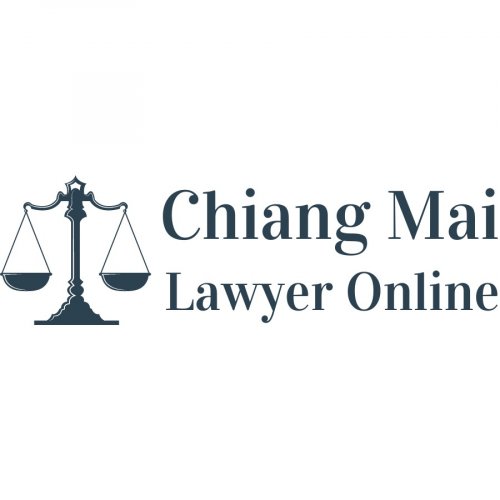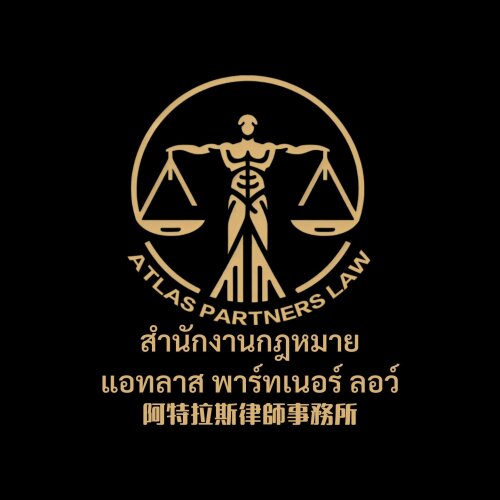Best New Business Formation Lawyers in Chiang Mai
Share your needs with us, get contacted by law firms.
Free. Takes 2 min.
List of the best lawyers in Chiang Mai, Thailand
Legal guides written by SIAM LEGAL INTERNATIONAL:
- Defamation Laws in Thailand: Criminal Charges and Civil Suits
- The State of Thailand’s Long-Term Resident (LTR) Visa Program in 2025
- The Penalties Of Not Filing Your Income Tax Return As A Foreigner In Thailand
Thailand New Business Formation Legal Questions answered by Lawyers
Browse our 2 legal questions about New Business Formation in Thailand and read the lawyer answers, or ask your own questions for free.
- Inquiry Regarding Licensing Requirements for Cryptocurrency ATMs in Thailand
- I am writing to inquire about the specific licensing requirements for operating cryptocurrency ATMs in Thailand. Could you please provide detailed information on the type of license that cryptocurrency ATM operators need to apply for?
-
Lawyer answer by Mahanakorn Partners Group Co., Ltd
Dear prospective client, Thank you for reaching out with your inquiry regarding the licensing requirements for operating cryptocurrency ATMs in Thailand. In order to operate cryptocurrency ATMs in Thailand, operators are required to comply with specific regulations issued by the...
Read full answer - Do I need an address in Thailand to form a Thai company?
- I spend most of my time abroad, however, I have a business in Thailand, does the company address need to be in Thailand?
-
Lawyer answer
Yes, your company must be registered at a physical address in Thailand, and this is where you will receive official documents and notices. If you rent this address, you must first get permission from the property owner to agree to...
Read full answer
Thailand New Business Formation Legal Articles
Browse our 5 legal articles about New Business Formation in Thailand written by expert lawyers.
- Legal Guide to Startups in Thailand
- Thailand has been fast rising as a hive of Southeast Asian startups. The Kingdom offers a good environment for creative companies with its strategic position, developing economy, and government programs to help entrepreneurship. New enterprises may find it difficult, however, negotiating the legal terrain. This thorough guide is to provide... Read more →
- Business Licenses in Thailand: A Step-by-Step Guide for Foreign Enterprises
- Within the dynamic economic landscape of Southeast Asia, Thailand stands out, offering a compelling mix of age-old traditions and contemporary aspirations. For international businesses aiming to penetrate this enticing market, understanding and navigating the comprehensive framework of business licensing is imperative. These regulations reflect Thailand's dedication to maintaining an orderly... Read more →
- A Guide to Navigating Thailand's Corporate Compliance Landscape
- Thailand offers an enticing economy and strategic position in Southeast Asia, making it a desirable destination for businesses of all sizes. Yet, succeeding in Thailand demands a solid grasp of the country's corporate compliance landscape. Our latest legal guide explores the key facets of Thai compliance, uncovering the issues, initiatives,... Read more →
About New Business Formation Law in Chiang Mai, Thailand
New business formation in Chiang Mai, as in other parts of Thailand, involves several legal steps and considerations. Chiang Mai is a vibrant city known for its growing economy and increasing entrepreneur community. Establishing a business here can be an attractive opportunity due to its strategic location and supportive environment for startup companies. However, navigating the legal framework requires understanding the distinct processes for business registration, compliance, and taxation specific to Chiang Mai and Thailand.
Why You May Need a Lawyer
Starting a new business can be fraught with legal challenges. Common situations where legal assistance is necessary include understanding business structures, complying with local laws, drafting contracts, and protecting intellectual property. A lawyer can help navigate complex regulatory requirements, ensure compliance with both local and national regulations, and offer advice on risk mitigation. Additionally, legal expertise is crucial for foreigners who may face additional restrictions and requirements.
Local Laws Overview
Chiang Mai operates under Thailand’s central administration regarding business laws. Key aspects relevant to new business formation include the need to choose an appropriate business structure such as a partnership, limited company, or branch office. Foreign business owners must navigate the Foreign Business Act which imposes restrictions in certain sectors. Compliance with tax registration, obtaining the necessary licenses specific to the business location and type, and adhering to labor laws are also essential steps. Consulting with local legal experts can aid in understanding and adhering to these laws.
Frequently Asked Questions
How is a business registered in Chiang Mai?
Business registration in Chiang Mai typically involves choosing a business structure, applying for a business license from the Department of Business Development (DBD), and adhering to local municipal requirements. Corporations, for example, must submit Articles of Association and a Memorandum of Association.
What are the different types of business entities I can establish?
The main types of business entities available include sole proprietorship, partnership, limited partnership, limited company, and branch office of a foreign company. Each comes with its regulations and suitability depending on the nature and scope of your business.
Do foreigners face restrictions when starting a business?
Yes, under the Foreign Business Act, non-Thai nationals are restricted from engaging in certain businesses unless they obtain a Foreign Business License or BOI promotion. Additionally, foreigners generally have restrictions on land ownership.
What taxes must my new business pay?
Businesses must register for tax with the Revenue Department, incorporating VAT registration if applicable. Corporate income tax at a rate of 20% generally applies, along with other taxes depending on your business activities.
Do I need a work permit to work in my business?
Yes, foreigners who wish to work in Thailand must obtain a work permit. The process involves securing a non-immigrant visa and subsequently applying for a work permit through the Ministry of Labor.
What documents are required for company registration?
Key documents include a Memorandum of Association, Articles of Association, shareholders’ list, and company registration application. Documents may vary depending on the business structure.
How long does it take to register a business?
The registration process can take 1 to 2 weeks, depending on the completeness of the application and required documents. Delays may occur due to errors or missing paperwork.
What's the role of the Board of Investment (BOI)?
The Thai Board of Investment (BOI) offers incentives like tax holidays and exemptions for businesses in promoted industries. Applying for BOI promotion can ease restrictions on foreign ownership and offer economic benefits.
Can I own land for my business in Chiang Mai?
Generally, foreigners cannot own land in Thailand, including Chiang Mai. However, they may lease land or set up a Thai company to purchase land under Thai majority ownership.
Is it necessary to hire Thai nationals for my business?
Depending on your visa category and business type, there might be requirements for hiring Thai nationals. There are regulations stipulating the number of Thai employees required per foreign work permit issued.
Additional Resources
The Department of Business Development (DBD) is a key resource for company formation and legal compliance. The Thai Board of Investment can guide incentives and the steps for foreign businesses. Local chambers of commerce and legal firms specializing in business law can offer invaluable advice and support.
Next Steps
If you require legal assistance for new business formation in Chiang Mai, consider consulting with a local lawyer specializing in business law. They can guide you through the registration process, ensure compliance with local and national regulations, and help mitigate potential legal risks. Start by listing your business objectives, researching potential attorneys with relevant experience, and scheduling consultations to find the best legal support for your needs.
Lawzana helps you find the best lawyers and law firms in Chiang Mai through a curated and pre-screened list of qualified legal professionals. Our platform offers rankings and detailed profiles of attorneys and law firms, allowing you to compare based on practice areas, including New Business Formation, experience, and client feedback.
Each profile includes a description of the firm's areas of practice, client reviews, team members and partners, year of establishment, spoken languages, office locations, contact information, social media presence, and any published articles or resources. Most firms on our platform speak English and are experienced in both local and international legal matters.
Get a quote from top-rated law firms in Chiang Mai, Thailand — quickly, securely, and without unnecessary hassle.
Disclaimer:
The information provided on this page is for general informational purposes only and does not constitute legal advice. While we strive to ensure the accuracy and relevance of the content, legal information may change over time, and interpretations of the law can vary. You should always consult with a qualified legal professional for advice specific to your situation.
We disclaim all liability for actions taken or not taken based on the content of this page. If you believe any information is incorrect or outdated, please contact us, and we will review and update it where appropriate.

















